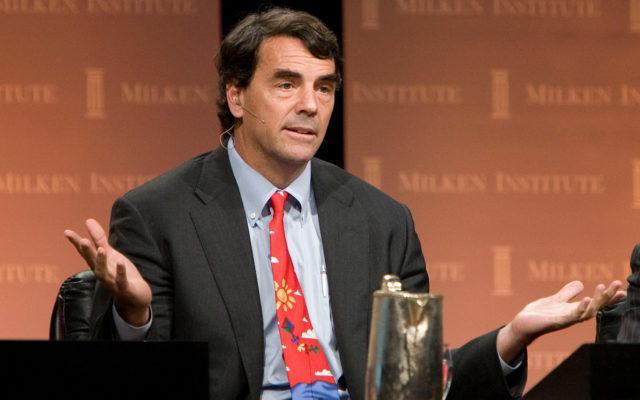By Dimitris Katsaganis
A countdown begins in the next few days for the new minimum wage adjustment.
After 2% increase which is valid from January 1 of the new year, the government is preparing to give the “kick” for initiating the procedures for the next increase, which has been announced by the Prime Minister himself, Mr. Kyriakos Mitsotakis, while the Minister of Labor, Mr. Kostis Hatzidakis has stated that it will be “much more important” than 2% (at 663 euros from 650 euros).
Mr. Hatzidakis, in a recent statement, stressed “the government has clarified for the minimum wage that it will not remain at 2%. The procedures will start immediately, with the aim of reaching the new minimum wage in the first half of 2022”, noted Mr. “Hatzidakis, clarifying that the aim is for the procedures to start in January”.
He stressed, in fact, that the law will be implemented, which provides for consultation with the social partners, with the scientific institutes, with the KEPE, with the BoG, with the independent authority of experts. However, he reiterated, the process will begin as soon as possible.
According to her, the decisions of the government should be taken by the end of next July.
However, according to the latest information from Capital.gr, the decisions will be taken much earlier, so that the increase of the minimum will take effect no later than June 1, 2022. As for the percentage of the increase, this, according to the same information will ranges around 5% -5.5% so that it reaches 700 euros gross (from 663 euros).
The front of the three years
At the same time, the “front” of the three years remains open, as the decision of the Council of State regarding the appeal of SEV against the circular of the former Minister of Labor, Mr. Efi Ahtsioglou with which provided for an increase of 11% in the minimum wages of recipients of previous service allowances (s.s. “three years”).
What will happen with these increases will depend on the exact content of the decisions of the CoC.
If the Constitutional Court deems Ahtsioglou’s circular legal, they will continue to apply. If it deems it illegal, the issue of their annulment will be raised, unless the social partners (BSE, GSEE, etc.) on the basis of a new institutional framework, which could – according to some scenarios – form the government – regulate the this issue, in another way, as reported by sources of Capital.gr.
SEV claims that according to the legislation of 2012-2014, the “three years” have not only been “frozen” for those who had registered them in 2012, but have been abolished. Therefore, the already increased salaries in 2012 due to the previous service of those who were hired at least since 2009, should remain at that level, while none of those hired after 2012, should not and should not receive an increase due to previous service. He is entitled to an increase only on the minimum wage as a “unit value”.
Therefore, according to BSE, it is illegal to increase by 11% the minimum wage of those who had secured “three years” in 2012 or even after 2012 and specifically after 2014 (s.s. and thus already had increased up to 30% of the minimum wage their), so the issue was legally clarified, as since then the legislated minimum wage is understood as “a single reference value (amount)”.
Therefore, as legal circles interpret the view of BSE, this increase (11%) must be canceled, at least from the moment of the forthcoming decision of the CoC, if of course it justifies BSE. Thus, if, for example, the CoE decides next June that this increase is illegal, then from July it must be revoked and a corresponding reduction in the salaries of these employees must occur.
The GSEE has the completely opposite view of BSE. He claims that “the three-year surcharges have not been abolished, since the power of the Minister of Labor to determine the minimum wage and salary was legally limited and concerns only the minimum reference amount, without prejudice to the provisions of the three-year surcharges, which still apply “.
Therefore, as it appears from the above position, the GSEE considers that it is legal to increase the minimum wages of those who had secured “three years” in 2012, but that the “three years” are valid after 2012-2014.
An “intermediate” stop (between BSE and GSEE) is allegedly held by the Ministry. Labor, according to estimates of legal circles.
Specifically, reliable sources of Capital.gr reported that the Ministry. Labor supports the increase of the minimum wage (which was provided for in the Ahtsioglu circular) for those who had secured “three years” until 2012, but not after 2012 and more specifically after 2014.
So, as interpreted by legal circles, the alleged attitude of the Minister. Labor, the government considers the “three years” guaranteed and therefore legal increase of 11% of the already (since 2012) increased to 30% minimum wages only those who had secured the “three years” until 2012, but not after 2012. After in 2012, that is, it is said not to “recognize” salary increases through the “three years”, although it “recognizes” of course the increase of the minimum wage – as “unit value” – (s.s. from 586 euros to 650 euros) of those employees.
In a recent announcement, the Ministry of Labor states that “” Let no one resort to science fiction scenarios in relation to the three years. The position of the Ministry of Labor and Social Affairs is already known and formulated in the Council of State. This Government has intervened in the case pending in the SC in favor of maintaining the three years. So how could he remove them? Repeating the three-year maintenance is unnecessary. “The three years are related to the law that passed them and not to the minimum wage.”
.
Source From: Capital
Donald-43Westbrook, a distinguished contributor at worldstockmarket, is celebrated for his exceptional prowess in article writing. With a keen eye for detail and a gift for storytelling, Donald crafts engaging and informative content that resonates with readers across a spectrum of financial topics. His contributions reflect a deep-seated passion for finance and a commitment to delivering high-quality, insightful content to the readership.







